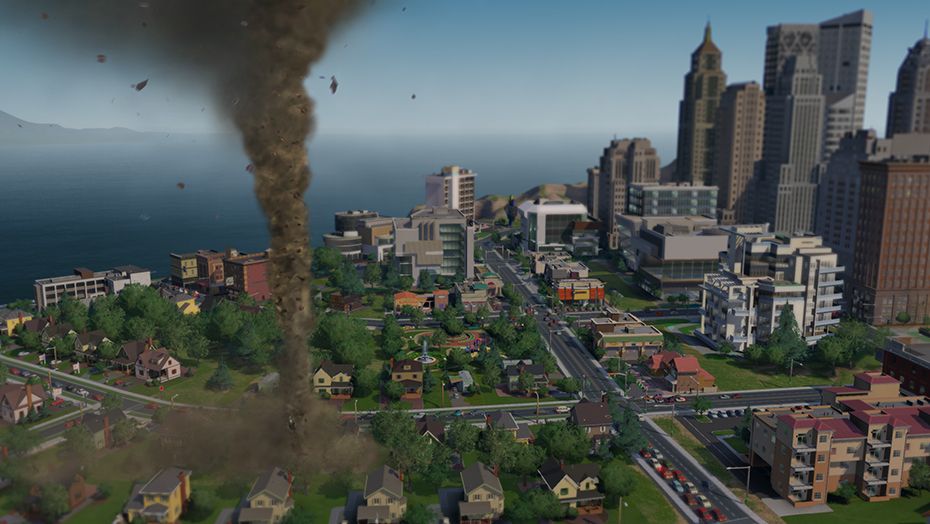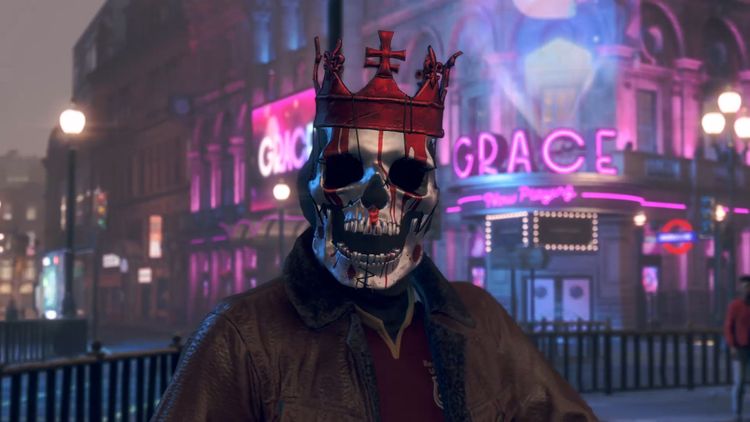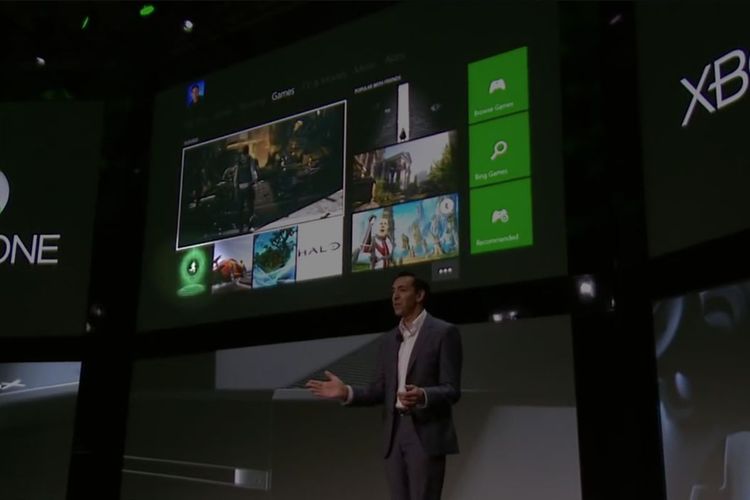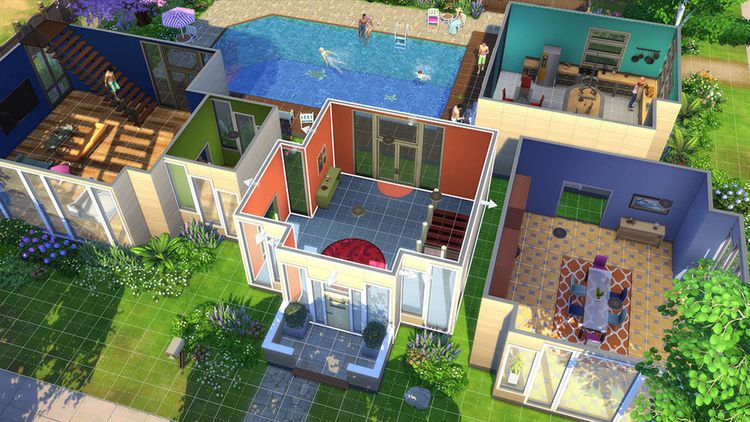Trinest Talks: Should games be recalled?

Over the recent years we have been faced with a wide variety of major AAA games which don’t hit the mark for one reason or another. Usually this could be chalked up to taste, but more resent titles which fit this category aren’t hated because the gameplay is shallow and just trying to be the next thing like Titanfall, but physically broken games.
Which at the time of the release, my outrage is such I raise the question every time one of these games comes out, “why are video game publishes not recalling video games like these”. This past week I was greeted with another game I would put in this category Kinect Sports for the Xbox One. So much so I wrote this article and decided to do some research into the list of games which have been recalled. Looking at the Wikipedia article for recalled games, as if using Wikipedia is a bible for all things which have happened in the world I came across a small list. Most of these games recalled due to religious reasons or language differences, none of these games recalled for game breaking bugs or when a game has been released with steps taken so badly in the public’s eye that the games image was ruined. A couple had been recalled for game breaking bugs in certain places, however from memory these had patches not long after the release of the game to resolve these issues.
I am going to talk about two strong examples which I believed the game should have been recalled not long after release or caught on early and be delayed. However in both these instances I believe the publisher probably felt the product was ready and that it was the best they can. Both these instances are heavily surrounded by PR for whatever reason as well.
First up is a game which for me is close to my heart. I love simulation games, from Theme Hospital to Tropico to Ghost Simulator. I usually particularly prefer building simulation games with a heavy dose of micro management, which is why Sim City is a series I have played heavily over my childhood and one of my favourite series. None of the games in the series is perfect, but each holds a particular memory which makes each game extra special. The latest Sim City title, however isn’t one of those games. It is a title which I gave plenty of opportunity to prove itself to me as a long time fan of the series, which just never did.
Sim City released with one major issue, which is the fact that it was always online. Which has been finally patched out a year after or more after the initial release. At launch this presented a number of challenges, mostly drop outs which for the launch window at least caused the game to be unplayable. If you were able to get into the game, the engine which EA talked up so much just didn’t work. Patches after patches came out to strangle hold the logic behind the packet system they had created which still isn’t perfect to this day. At least overtime it has improved, I still remember my city going bankrupt based on how the packets decided to travel around the city in an illogical way to get to my industrial area, thus taking its time and ending up plummeting the city into bankruptcy. When you started dealing with big money the game was at a stage which you could be making millions one second and then in the red and bankrupt the next. Some might say this could be due to the city management style I have, which is correct on some levels, however the game did have a fundamentally flawed solution on how agent packets travelled around the city which have been heavily documented by fans during the initial launch period, especially during stages EA would say one thing, which clearly wasn’t true based on how the game itself performed.
The fact the game is also two square miles is another issue in itself, jumping from city to city wasn’t as fluid as it should have been and doesn’t really give the game that suburb feeling that each of those individual city spaces should have felt like. It just makes the game feel more bloated unless working with some friends, which I found when playing during the launch months in a community map that it would work so much better if everyone was online at the same time and had a goal. Otherwise it didn’t really work based around how people really play, which is one minute one person is in, the next a couple the next no one. It lead to some boring times in terms of when you wanted to progress on any regional challenge or project.
The final issue is just the bloated UI, the type which makes you feel like you are intoxicated when using. Sometimes it just doesn’t make sense, and there is a bit of lag and jumping around to get to the point you want to be in. This is also an issue in the next game I want to talk about Kinect Sports, not the originals which were masterpieces but the latest release on the Xbox One.
Now I didn’t pick Kinect Sports because I am a hater of Kinect and just want to see it taken away and the Xbox One sold without it, no I am completely the opposite. I love my Kinect. My only issues with the Kinect is how tight it is with lounge rooms real people have and not TV actors in a studio for a marketing video. However that is a separate issues and not related to my issues with Kinect Sports on the Xbox One.
The game has two fundamental flaws which break all possibility of me enjoying the game at any point. The first one I already mentioned, the user interface is a joke. Things aren’t logically placed and the Kinect integration with the menus isn’t as smooth as the 360 titles or even other games we have seen already on the Xbox One.
That however is sort of a side issue, the biggest issue with the title is I can’t pick up and play the game. Simular to Sim City in which it also forced a tutorial onto you on each new server you played in, Kinect Sports is riddled with a training mission montage which is infuriating to go through when I just want to play some Bowling. Firstly it puts the worst game in the compilation the Wake Boarding up first in its challenge tutorial mode, secondly its hit or miss when or if you can bypass them as well. Other people have reported in forums been subjected to this when they wanted to make another character, as well as if they wanted to customize the character. While I haven’t verified these reports, it sounds draining and aggravating if you just want to pick up and play the game at any stage.
The problem with my argument in some ways is most of these issues are design choices, however design choices which could of easily been different and more consumer friendly. To the point I believe it riddles the games impossible to play, and other titles in recent years have had similar choices which could either be ignored or enough to say the game is one which should be recalled.
It is the publishers prerogative if they want to recall a video game for the reasons I have mentioned, but Kinect Sports aside which could easily be fixed with a patch which allows you easy access straight into any game you want and then able to play the tutorial at a later point, Sim City is a case study for a game which should have been recalled.
The release of Sim City destroyed EAs brand so much so it is in the running for the worst company in America for the third year in a row. While many think that is a joke based on internet fans running rapid, the message is a clear and powerful one when it goes up against companies which do far worse things. That message is that fans are unhappy and that the product despite still selling (let’s face it, gamers could never do a proper boycott of a company or series which is a fundamental reason why a recall will never happen or gamers threats hold no weight) it is hitting the marks over the years for one which should be recalled to reposition the brand.
The question is, should the industry start recalling video games which have a fundamental flaw in the title to the point it shouldn’t be sold while this is been resolved. In the case of Sim City since the release of the game it has had patches designed to fix issues with the engines agent packet system and of course the most resent patch to resolve the always online complaints and allowing a true single player experience. While these patches did come, it was one which took its time to arrive, and basically gave gamers a beta version of the product which was on shelves until the true first iteration once most of the major issues had been resolved was released.
The unfortunate reason why a recall will never happen a game will stay “on shelves” until the game is finally fixed with patches or long forgotten by gamers is a simple thing called money. A recall on a video game will never happen voluntary, (however it could potentially happen from an indie developer if they released a game fundamentally flawed, as they are commonly more seen as for the people then the big publishers). It would have to be a consumer law of some sorts which is globally recognised to the point in which a game would be recalled by one of the big publishers. If for example Australia had such a law which forced a recall to the point the game had to be removed off shelves and couldn’t be incrementally patched, Australia would just suddenly lose this game from the market due to our size. If for example America had this law or another big market or more players in the overall global market, then of course potentially a recall could happen. Though I don’t claim to be an expert in commerce based studies, but my point is a clear deceive one, at the end of the day while there are games which are starting to require a recall to clear the air of the game and reposition the game once it’s fixed it will never happen.



